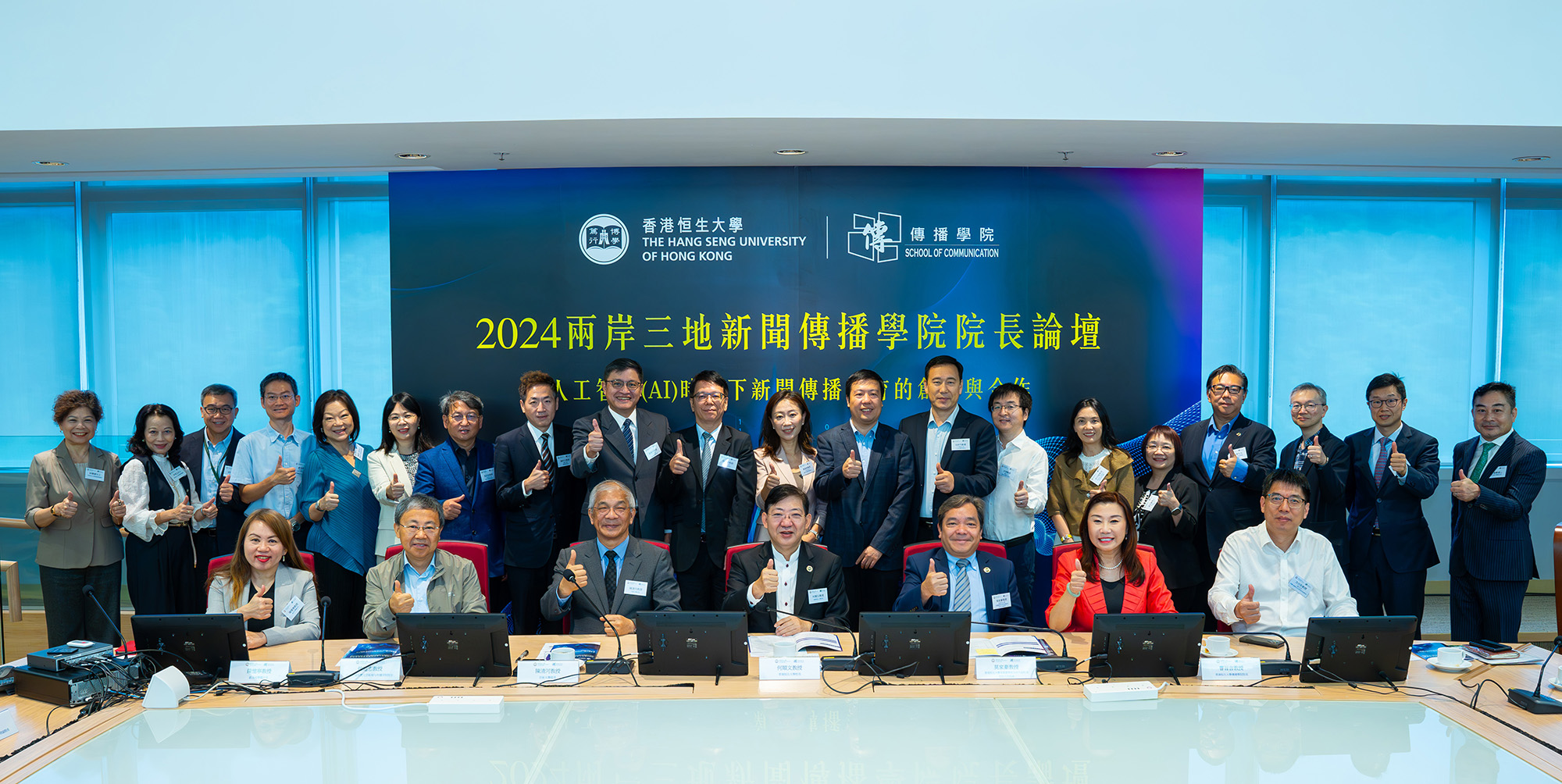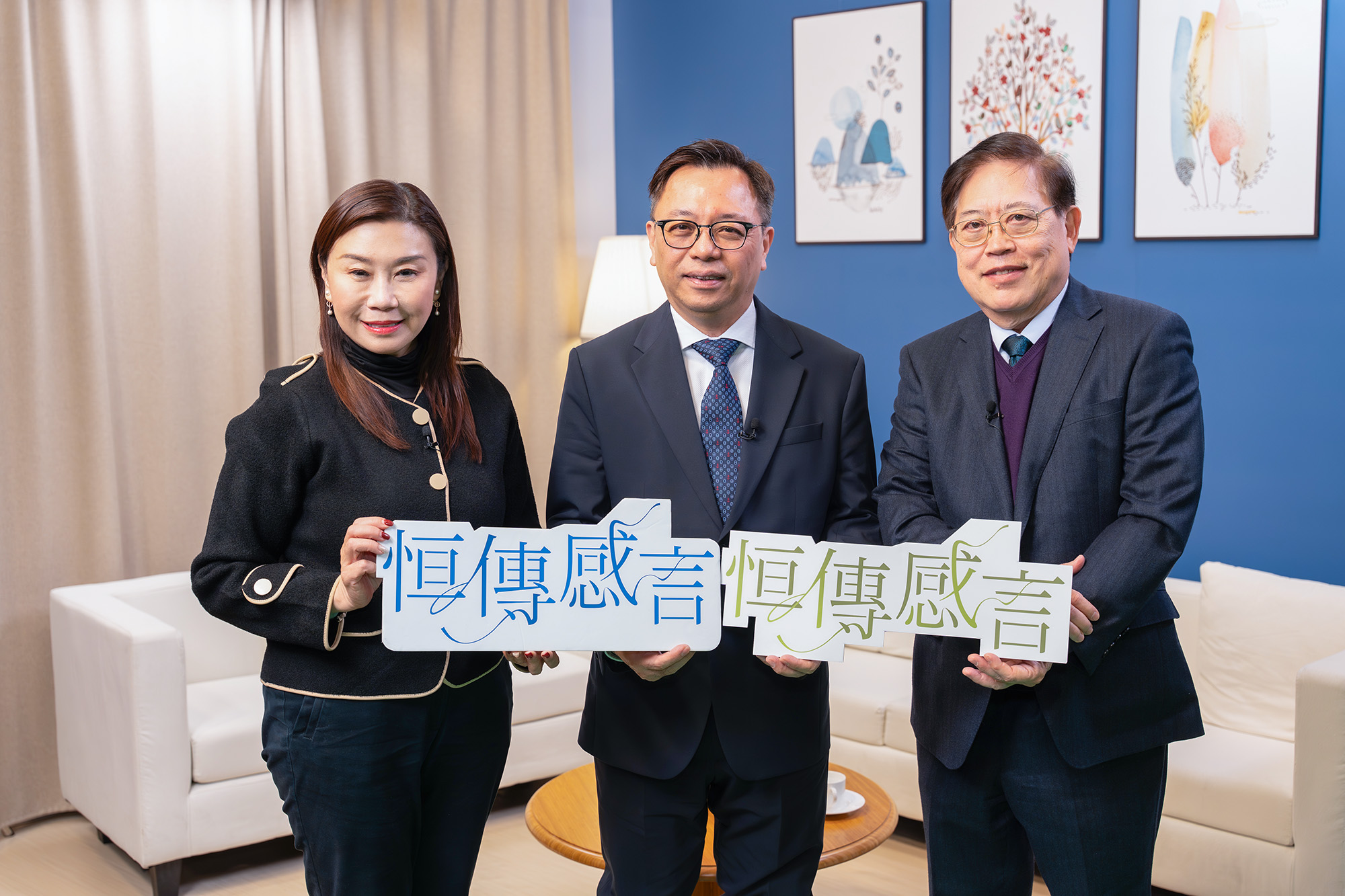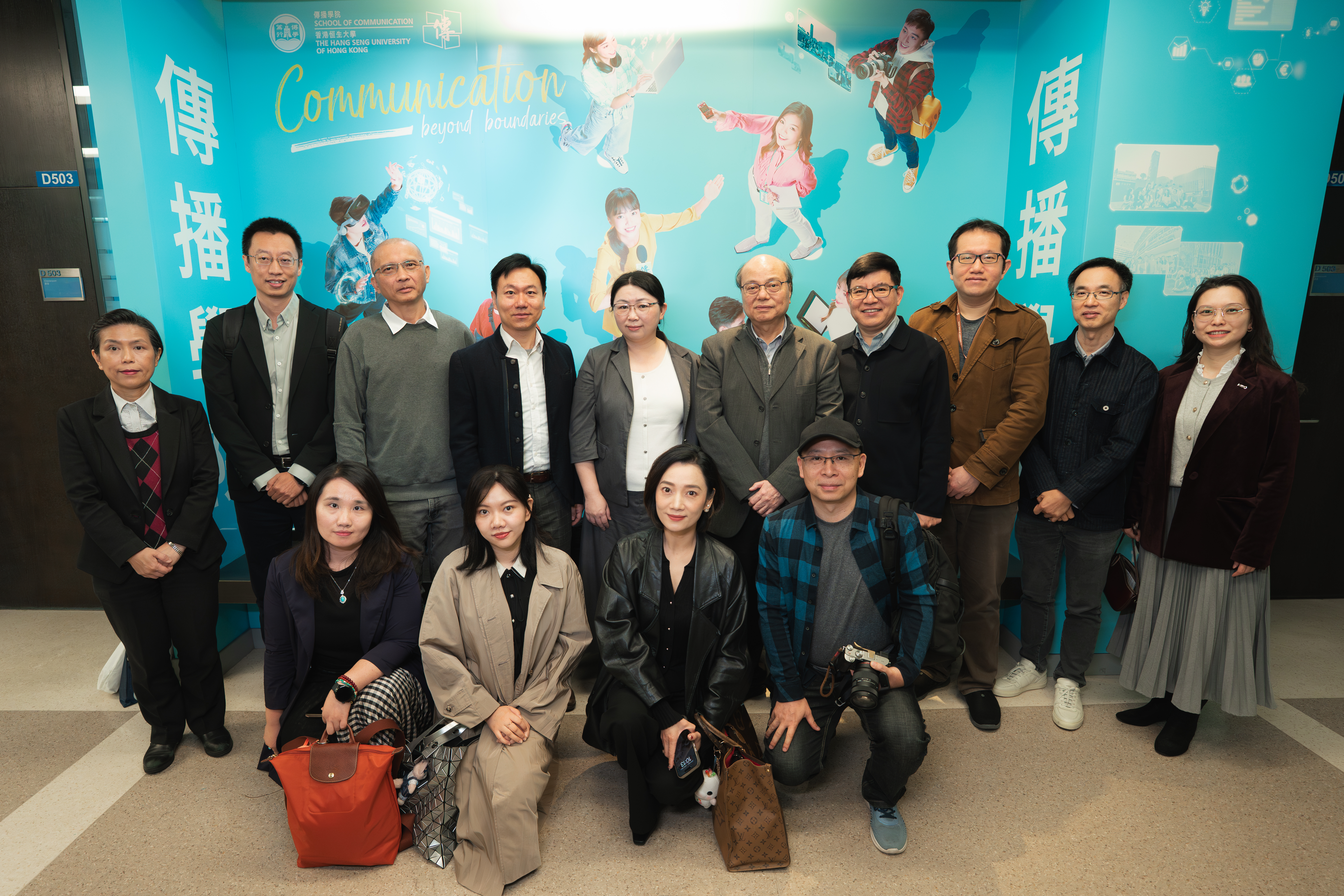The School of Communication of The Hang Seng University of Hong Kong (HSUHK) hosted the “2024 Forum of Deans of Schools of Journalism and Communication from Mainland China, Taiwan, and Hong Kong” from 18 to 19 October 2024. This event brought together deans and senior professors from 15 renowned universities, including Beijing Normal University, Fudan University, Shanghai Jiao Tong University, Zhejiang University, Sun Yat-sen University, Guangdong University of Foreign Studies, Guangdong University of Finance and Economics, and Jinan University from Mainland China, as well as Chengchi University, Shih Hsin University, Fu Jen Catholic University, and Ming Chuan University from Taiwan, along with City University, Chinese University, and HSUHK from Hong Kong.
The forum, themed “Innovation and Collaboration in Journalism and Communication Education in the Era of Artificial Intelligence,” explored three key topics: the impact and opportunities of AI on journalism and communication education, strategies and innovations in this field in the age of AI, and new models for collaboration between industry, academia, and research in the context of AI.
The opening speech was delivered by Professor Simon Ho, President of HSUHK. He emphasized the need for journalism and communication education to adapt to the rapid development of AI while incorporating the five core humanistic qualities valued by the university’s liberal arts education: critical thinking, creativity, interpersonal communication and collaboration, a caring attitude, and continuous active learning. This ensures that future journalists can responsibly report the truth with the assistance of AI, maintaining the integrity and transparency of news.
Professor Scarlet Tsao, Dean of the School of Communication at HSUHK, also delivered a welcoming address on behalf of the organizers. She warmly welcomed the deans and professors from across the regions and pointed out that AI is bringing unprecedented impacts and opportunities to the field of journalism and communication. As deans of journalism and communication schools, it is essential to actively respond to these changes and propose forward-looking plans to cultivate talents that meet the needs of the times.
The forum featured keynote speeches from Professor Chen Ching-ho, President of Shih Hsin University in Taiwan, and Professor Mok Ka-ho, Provost and Vice-President (Academic and Research) of HSUHK. President Chen addressed “The Five-Mile Road of AI and Talent Development in Communication,” highlighting that AI has entered its fourth wave of development, encompassing deep learning and generative AI. He analyzed the rapid transformation of media in response to AI, particularly regarding end-user devices and consumption changes, along with global trends in large AI models, the AI industry ecosystem, and the diffusion effects of AI talent, industry, and technology. He also discussed the skills needed for the “Five-Mile Road of AI,” including AI-generated content, digital storytelling, programming and application of AI, data analysis and customized services, as well as legal ethics and risk management related to AI.
Professor Mok presented on “Managing Rapid Socio-Demographic Change: Communication Promoting Social Policies for Aging Society.” He discussed how the aging population is becoming a trend in Hong Kong and many advanced countries, leading to increased healthcare expenditures and heightened societal concerns about elderly care. The integration of journalism and communication with AI to promote a community-based elderly care system has become a topic for collaboration among government, industry, and academia.
Scholars attending the forum noted that the impact of AI on the news industry and communication education is increasingly evident. From automated reporting to data analysis, AI is redefining how we collect, edit, and distribute news information, as well as the modes of communication. AI also significantly impacts communication theories, research methods, curriculum design, and talent cultivation. In this context, journalism and communication education needs to reassess the existing educational system, implement curriculum reforms, emphasize enhancing faculty expertise, and foster interdisciplinary collaboration and innovation. Students’ learning modes must also evolve, encouraging them to explore AI applications in news reporting, public relations, and various communication methods while understanding the potential risks and ethical challenges associated with AI technology.
The forum highlighted the opportunities presented by the rapid development of AI, including accelerating innovation in teaching content, enhancing interdisciplinary learning opportunities for students, and promoting the integration of the AI industry with journalism and communication education. Scholars expressed that the development of AI is an inevitable trend, and rather than fearing its advancement, we should teach students how to effectively utilize AI, redefine the positioning of journalism and communication, and strengthen collaboration among journalism and communication schools. This includes establishing cross-institutional alliances, sharing resources and best practices, and jointly conducting research projects to facilitate deeper exchanges between academia and industry.
The forum also called for the formulation of effective strategies to promote the application of AI in journalism and communication education, with an emphasis on ethics education. Such comprehensive measures will help cultivate professionals who can lead the field of journalism and communication in the age of artificial intelligence.
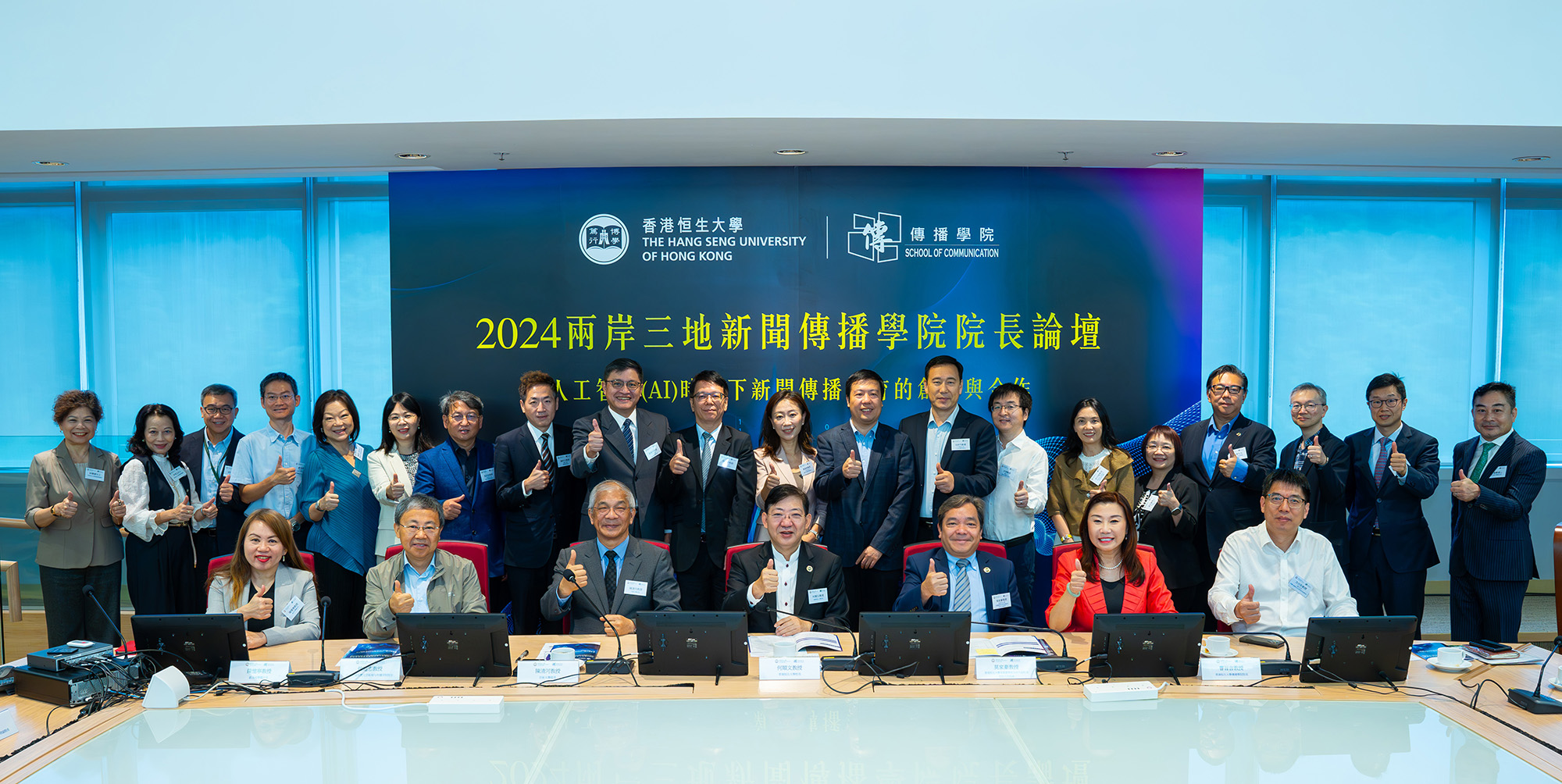
Group photo: Professor Simon HO, President of HSUHK, and all guests
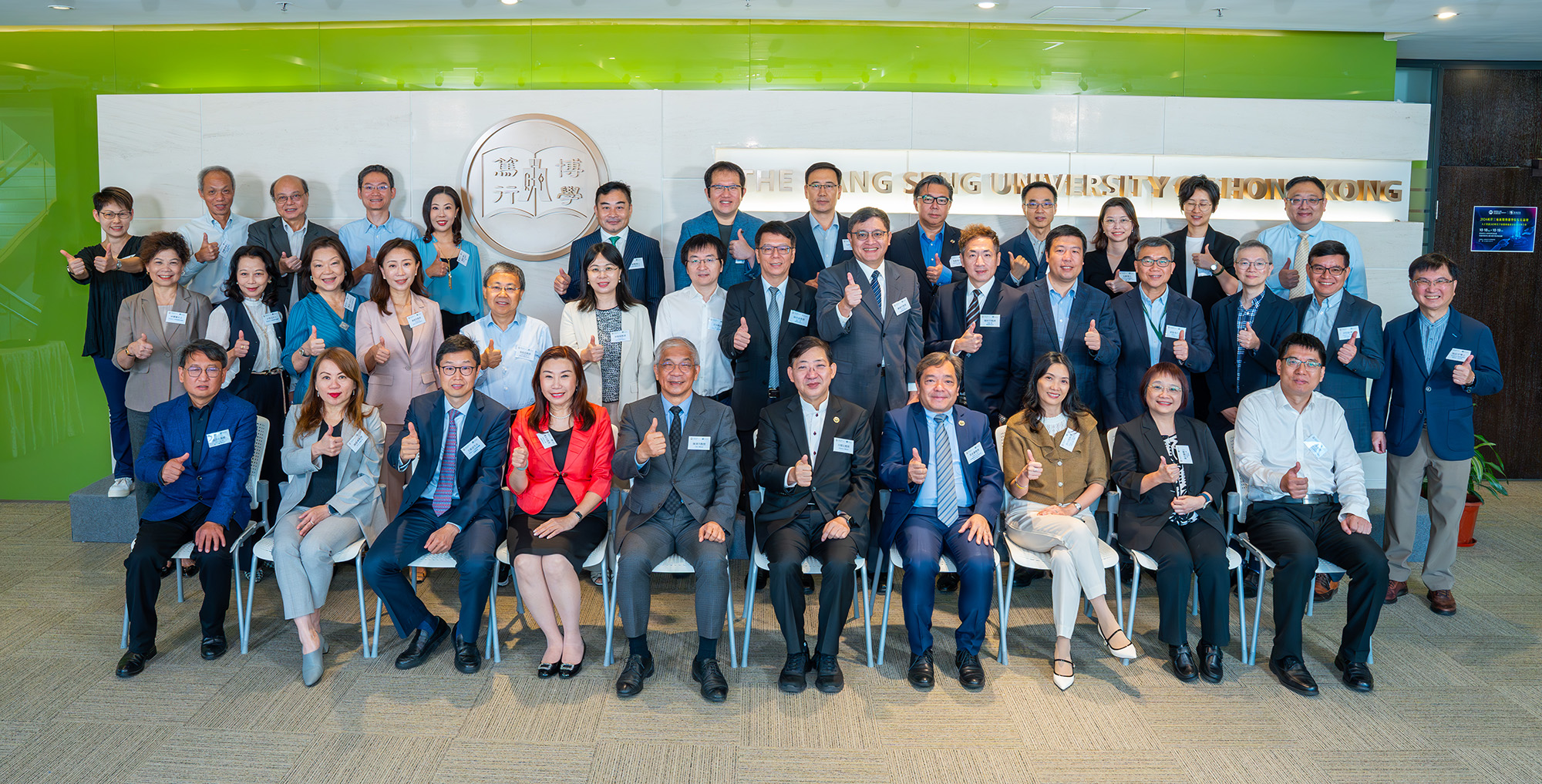
Group photo of all guests
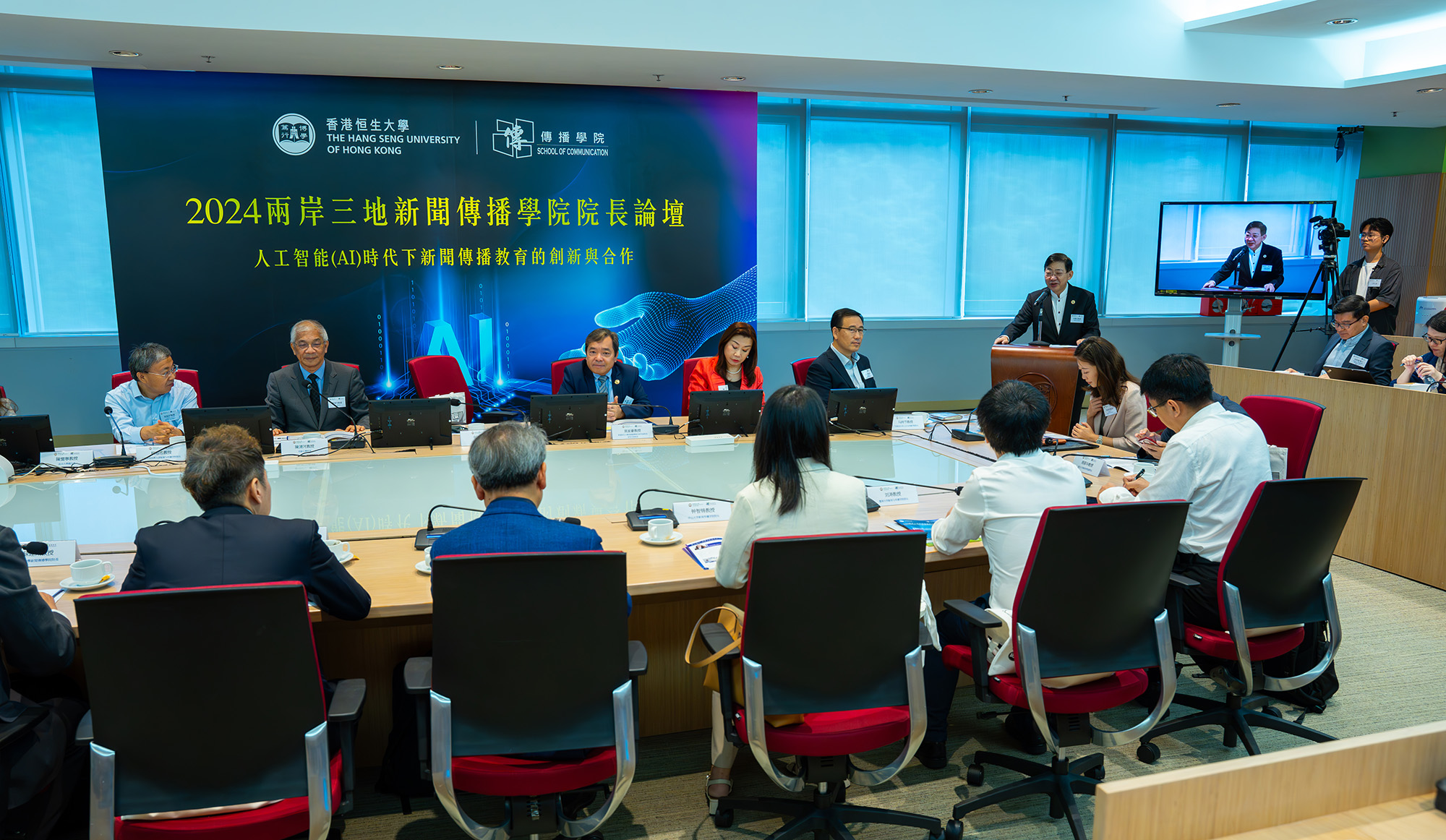
Opening speech by President Simon HO
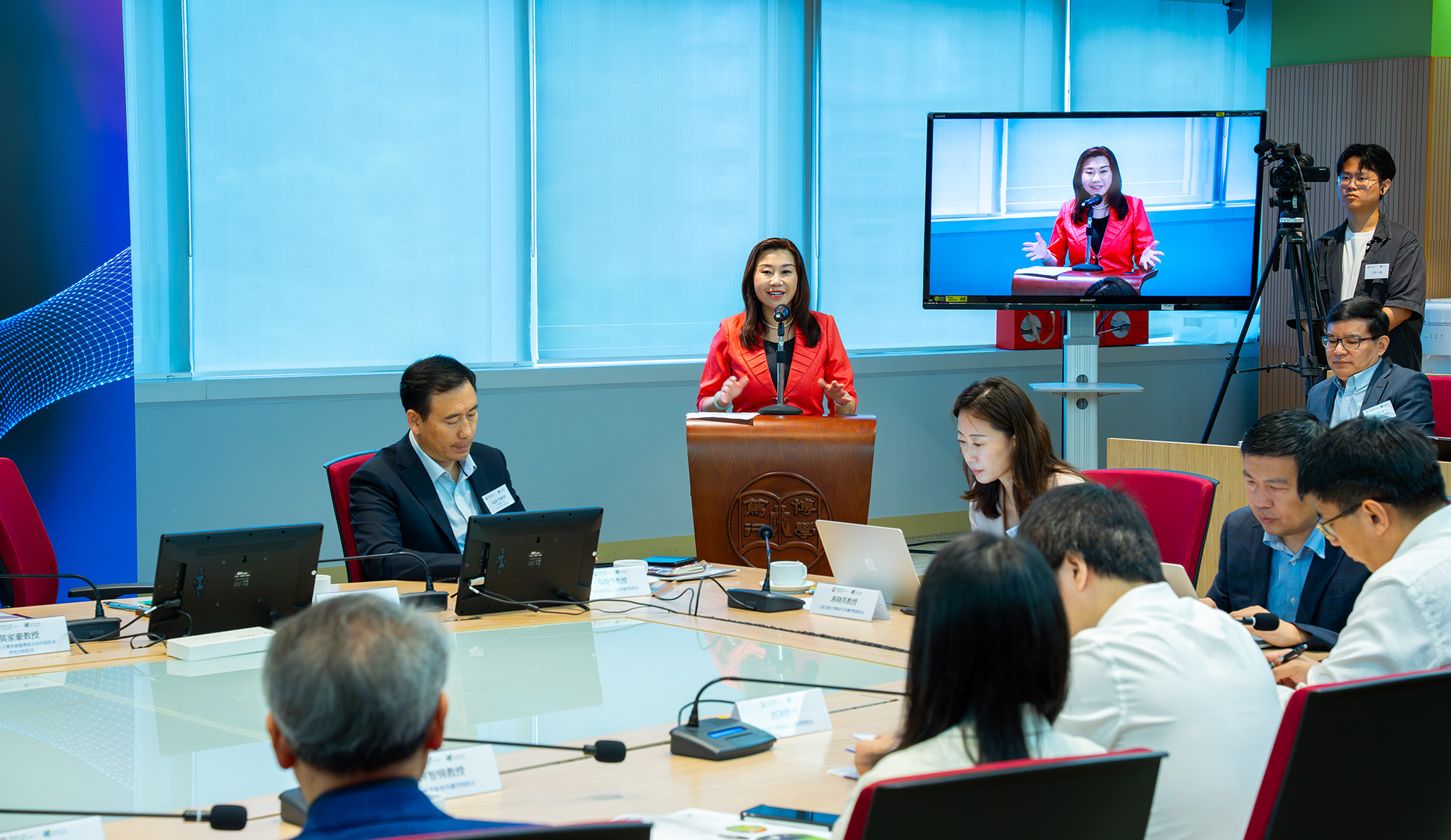
Welcome remarks by Professor Scarlet TSO, Dean of School of Communication, HSUHK
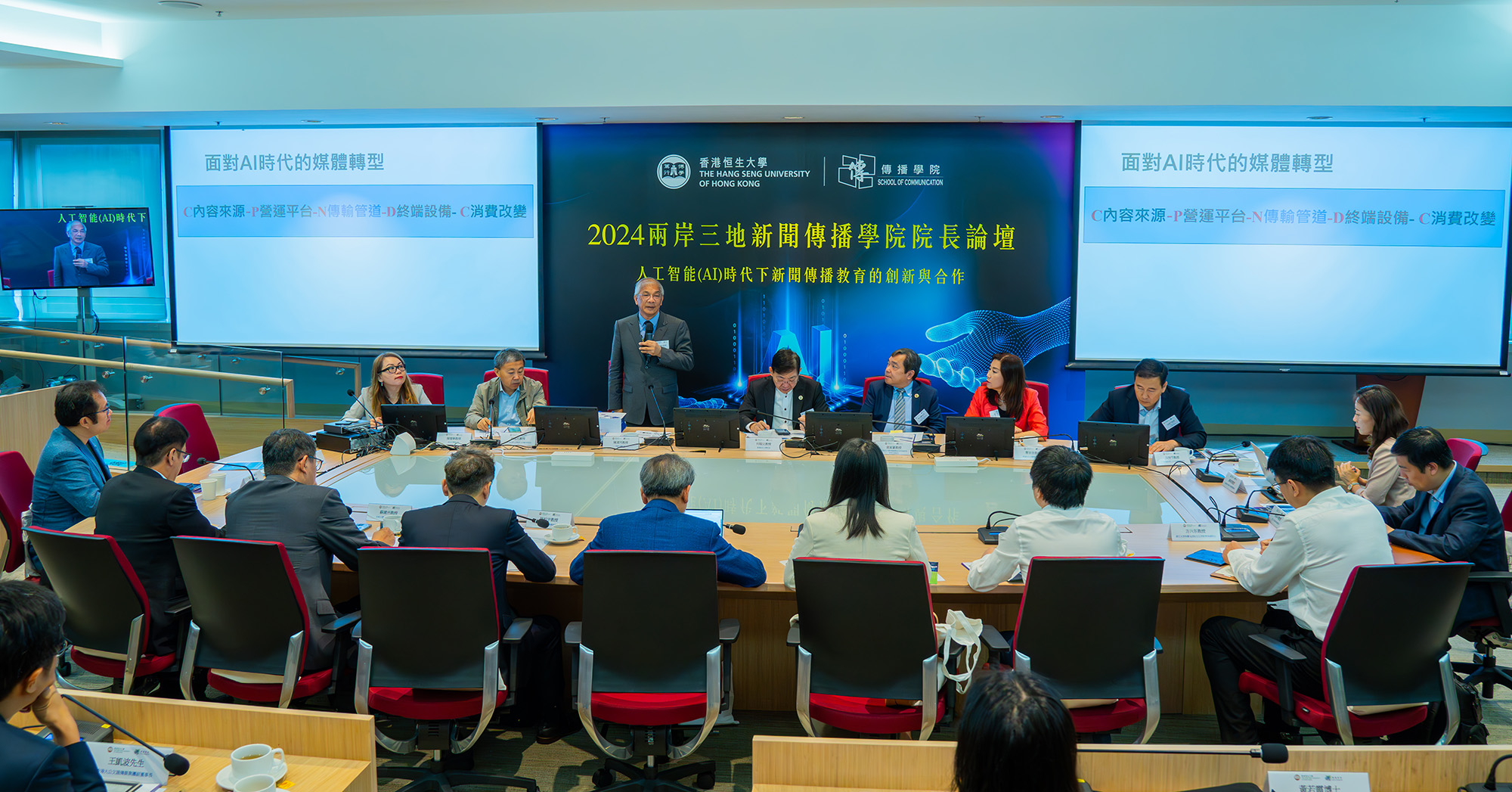
Keynote speech by Professor CHEN Ching-Ho, President of Shih Hsin University
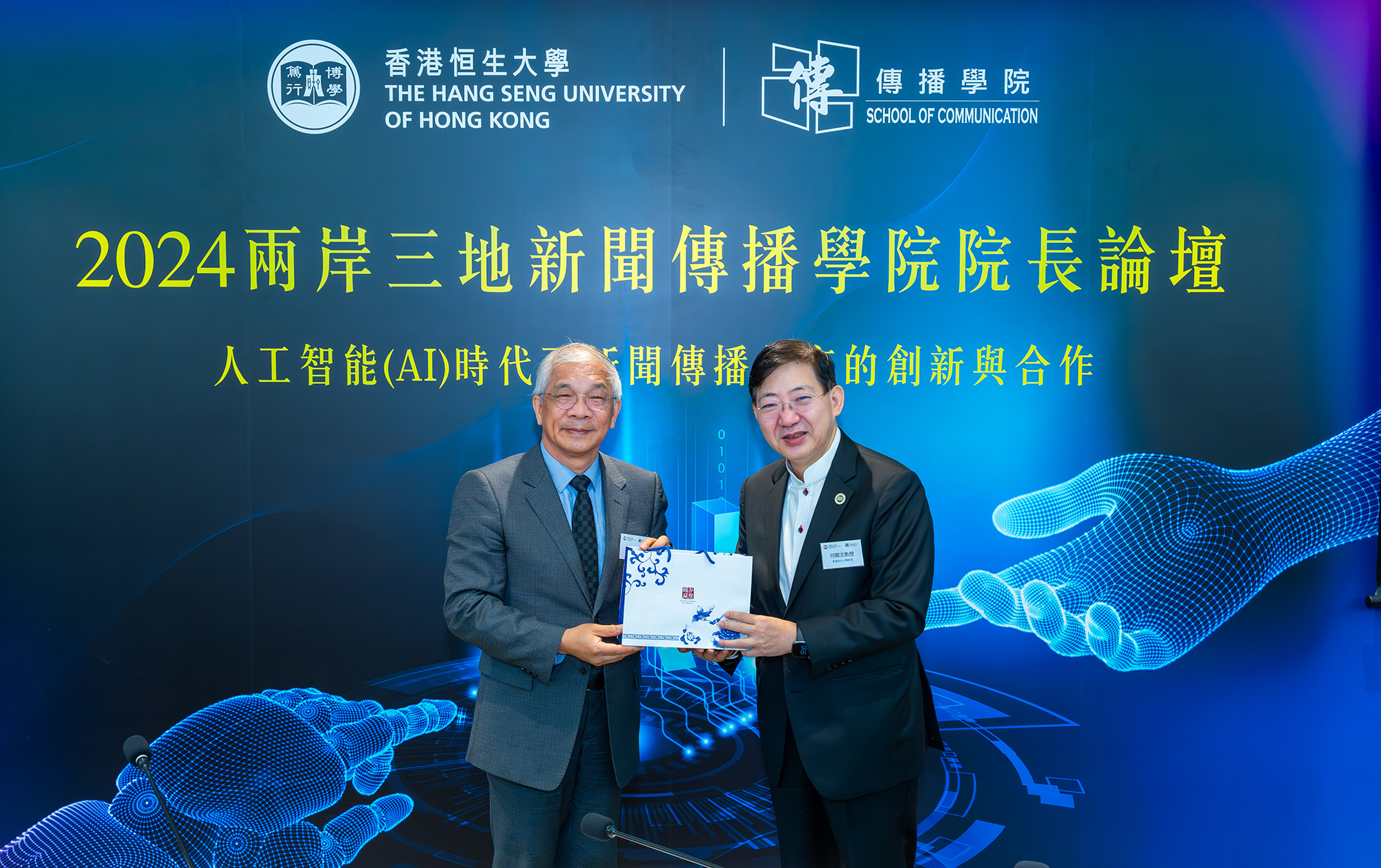
President Simon HO presents a souvenir to President CHEN Ching-Ho
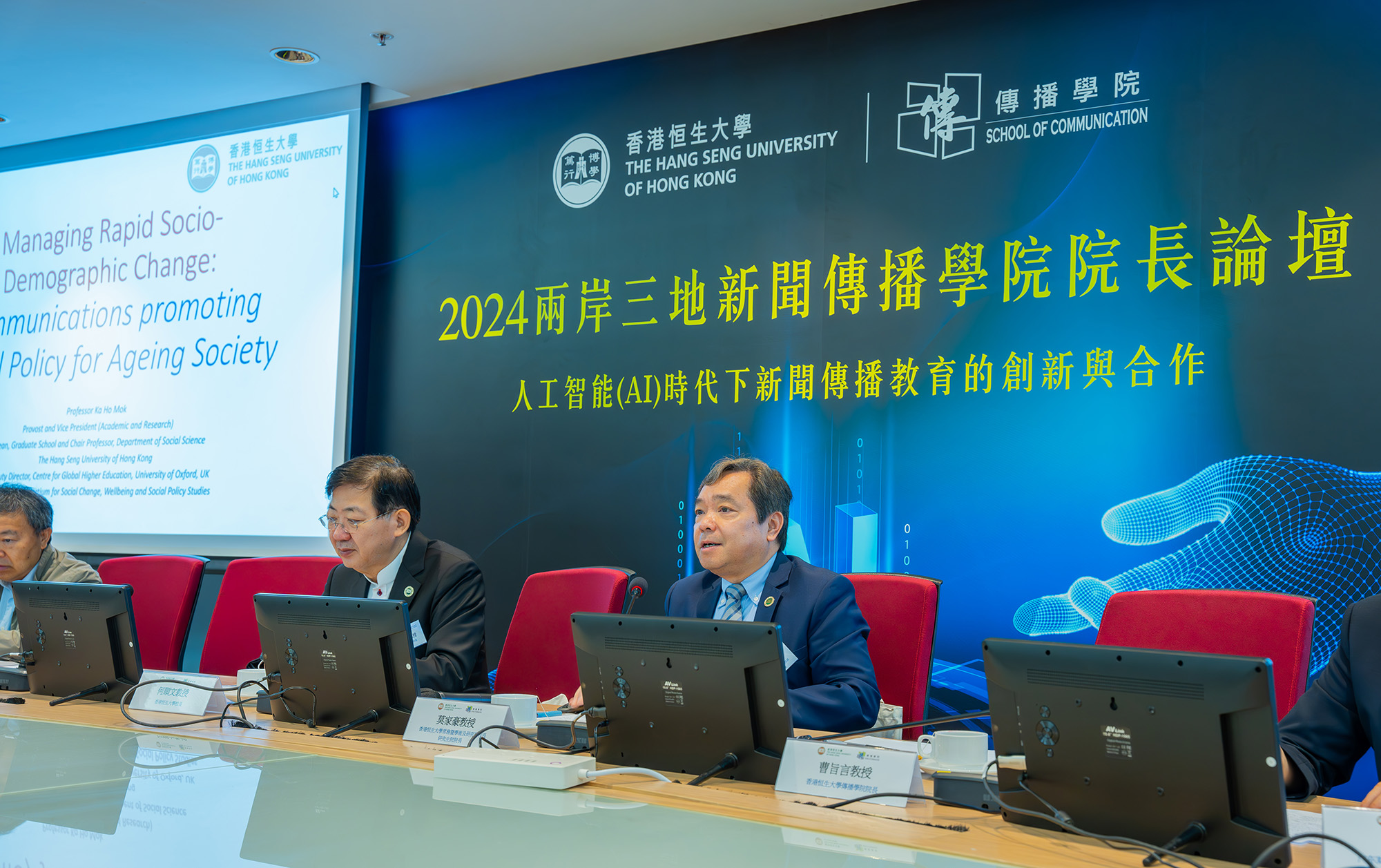
Keynote speech by Professor Josua MOK, Provost and VP(AR) of HSUHK
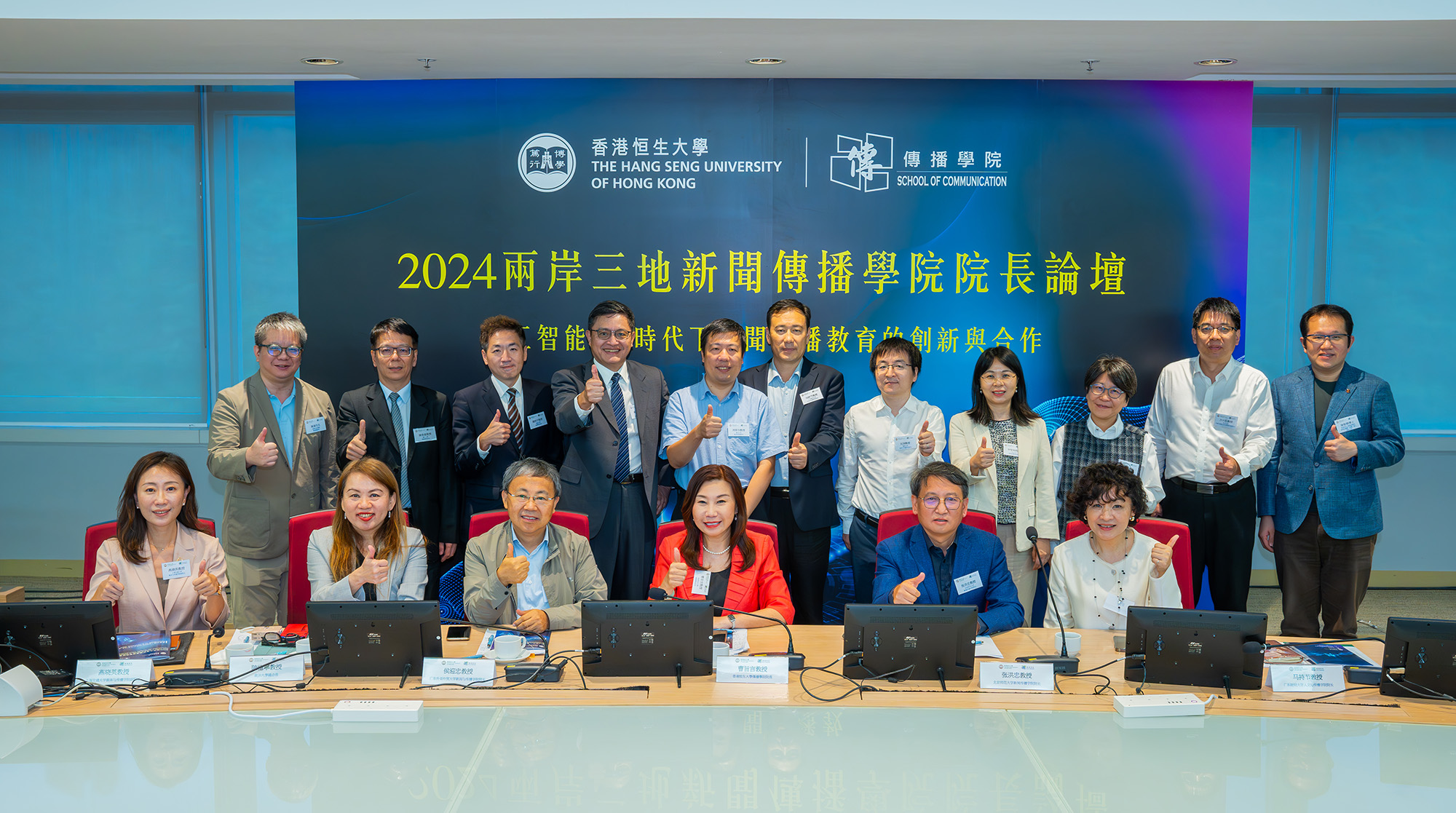
The first session discussion
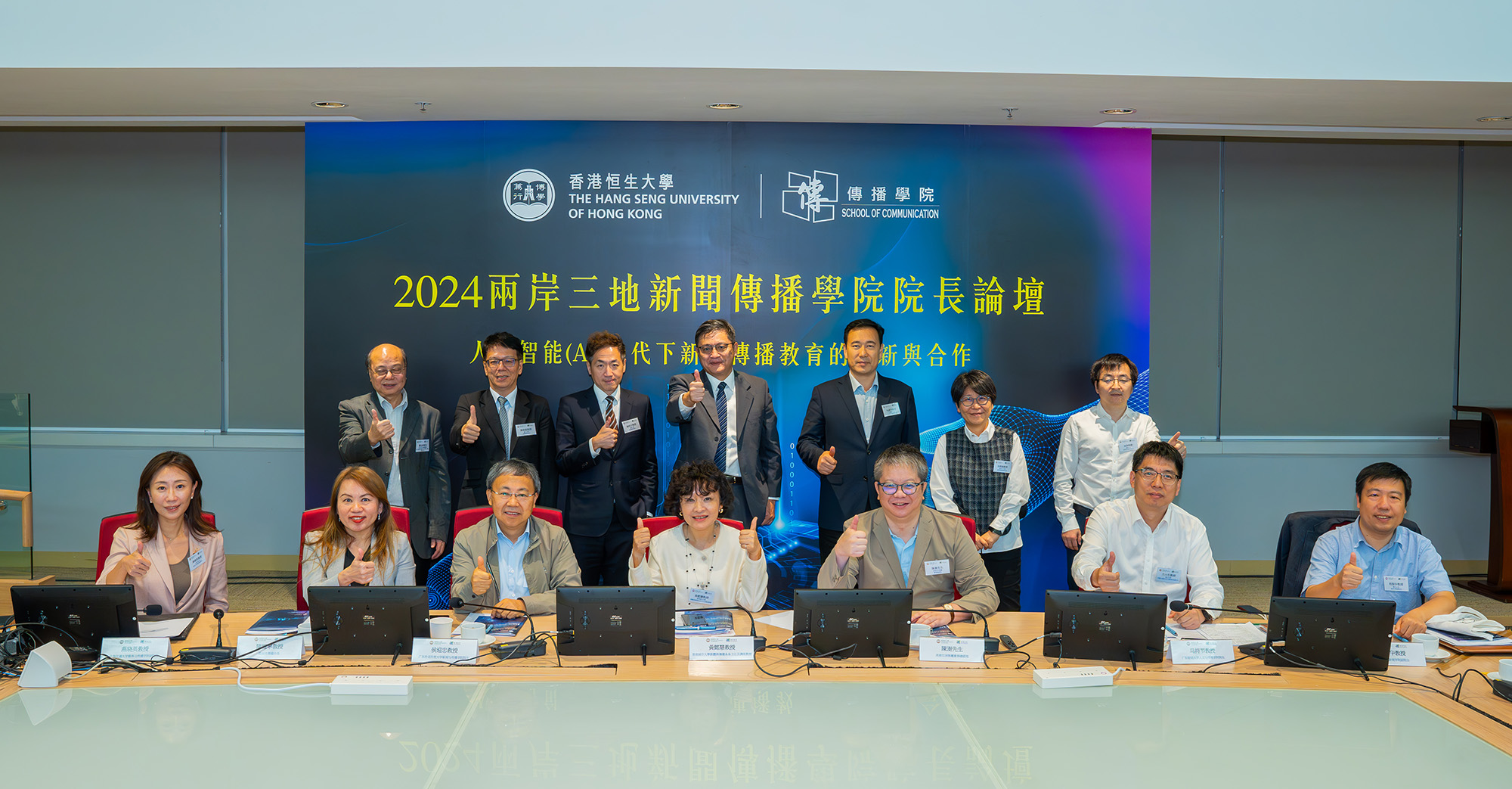
The second session discussion
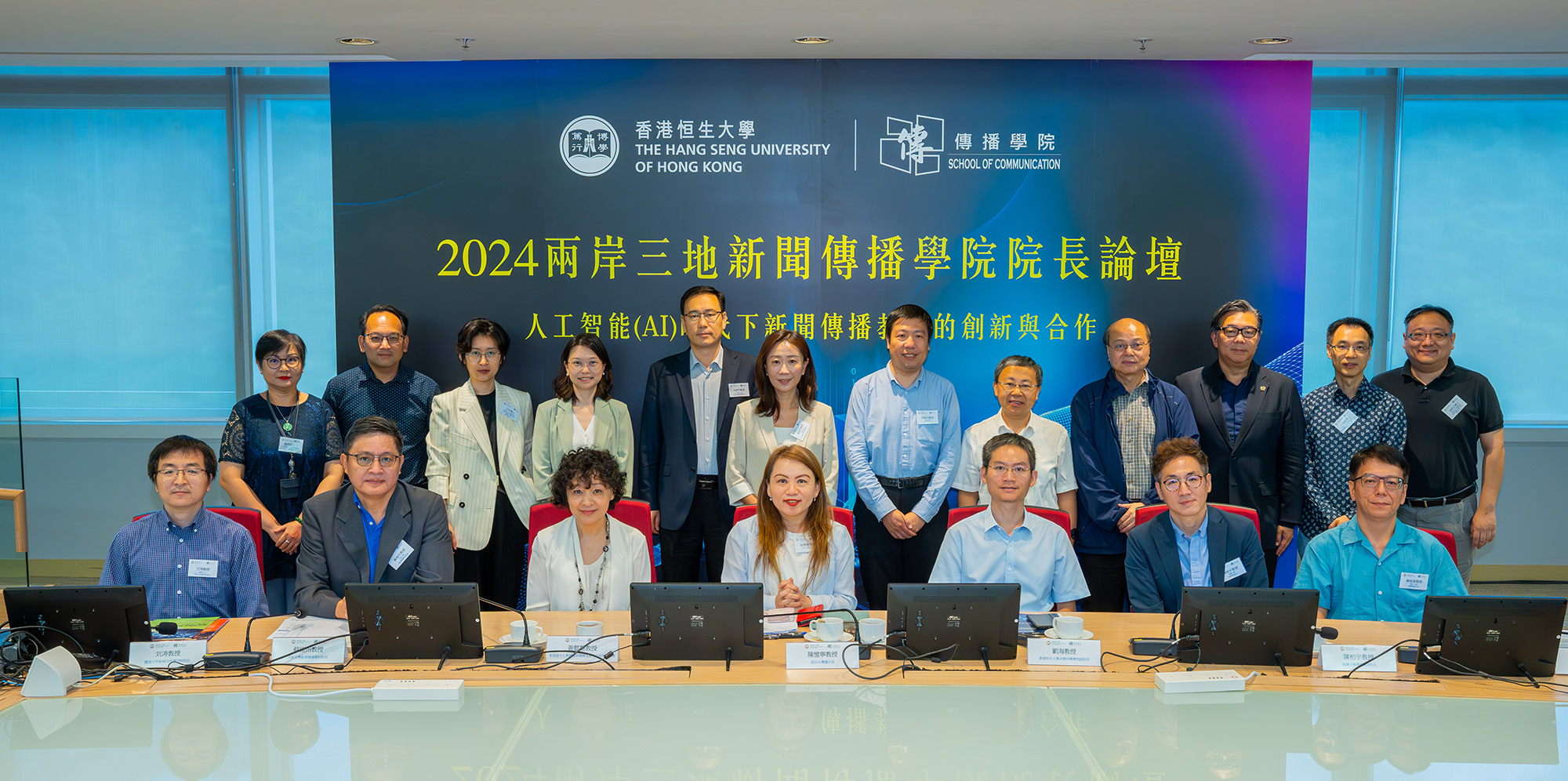
The third session discussion
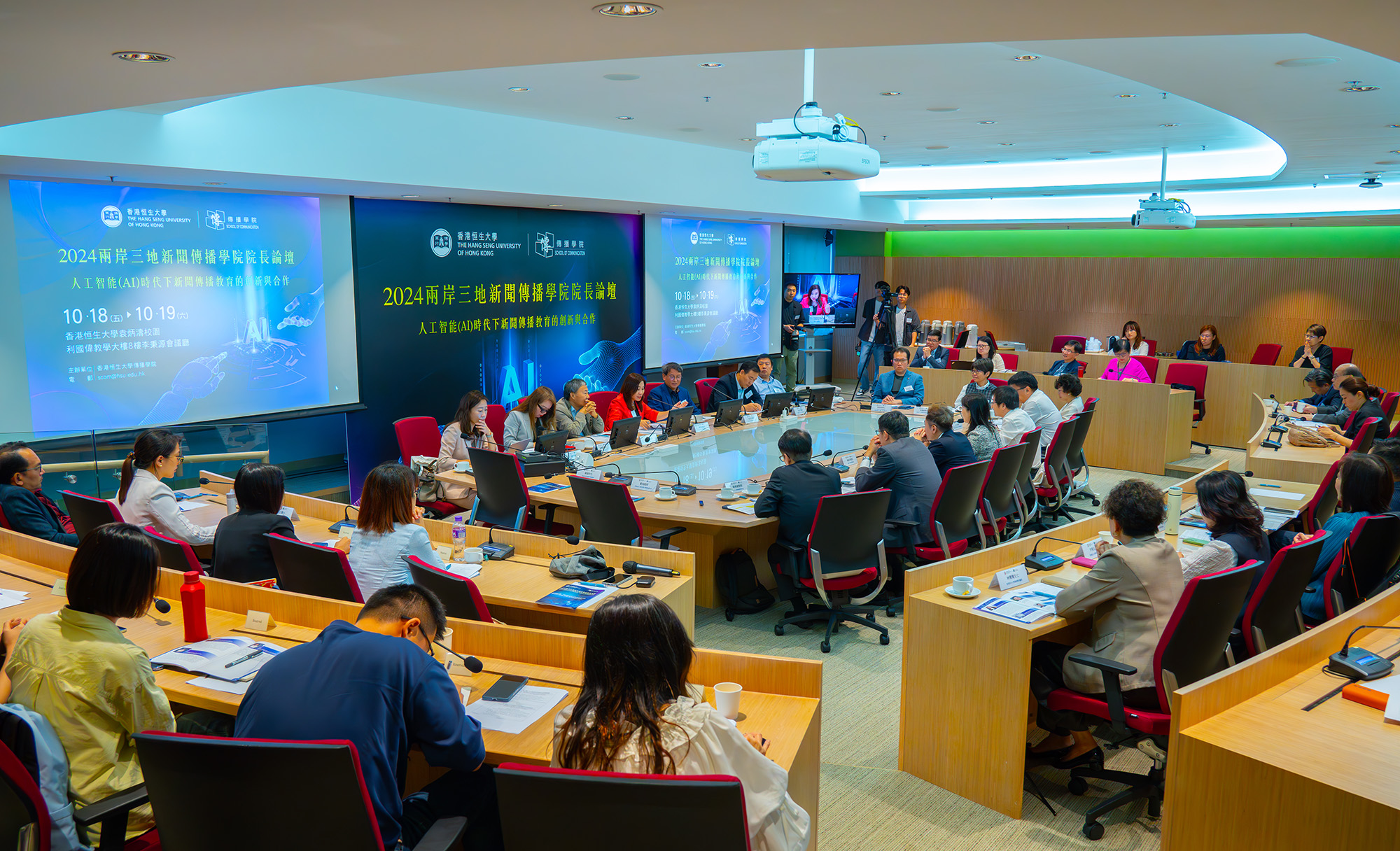
Forum Discussion
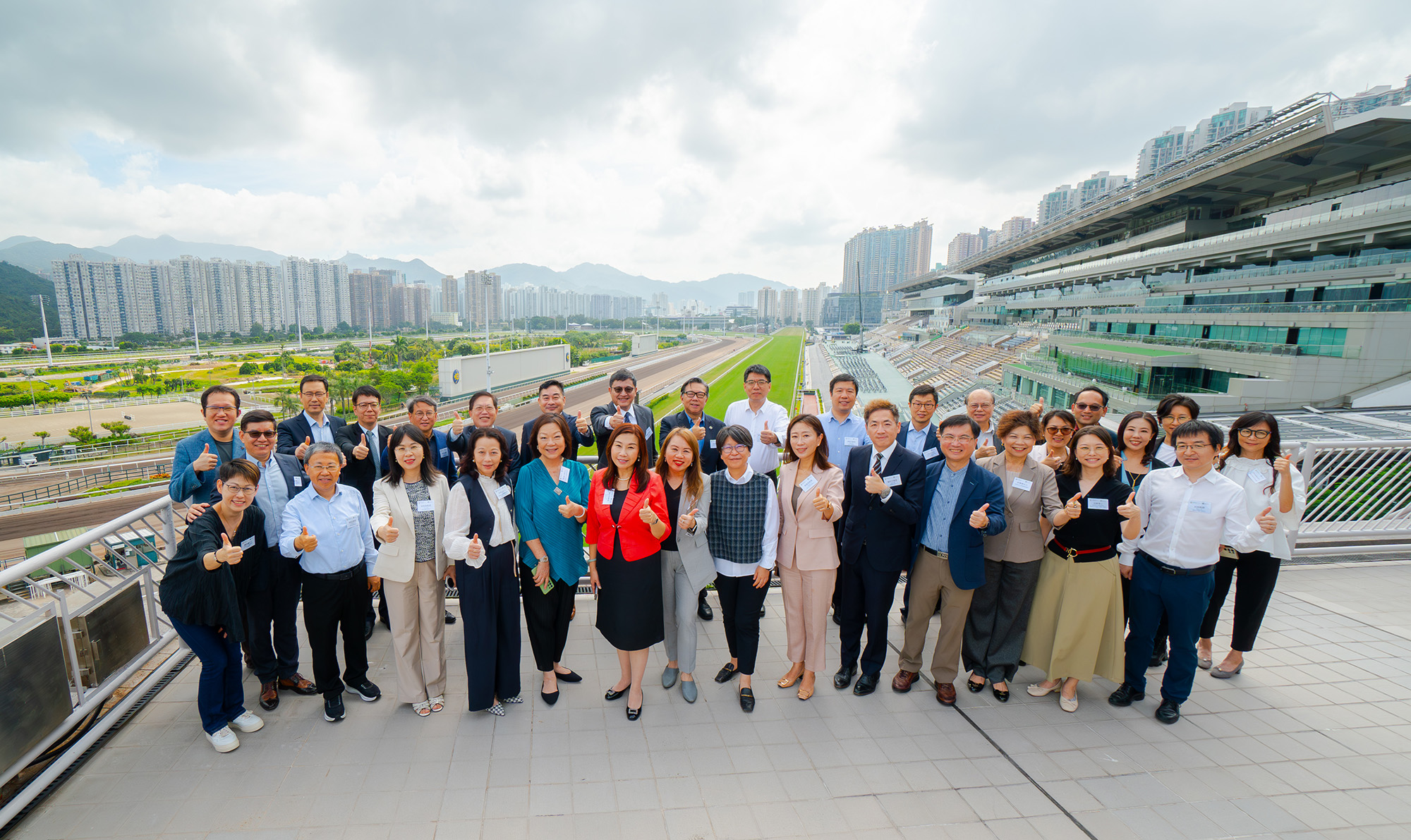
Guests visiting the Shatin Jockey Club

